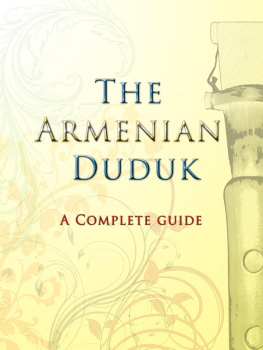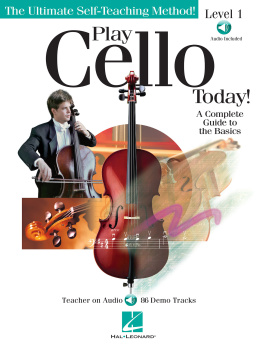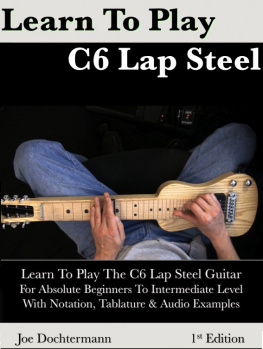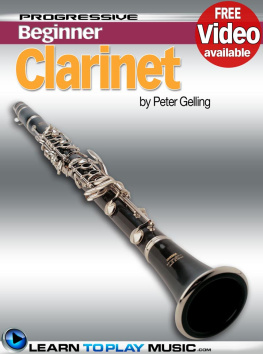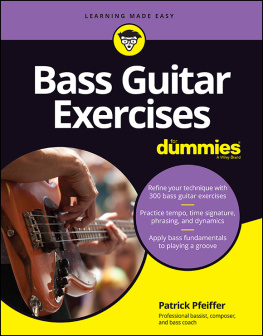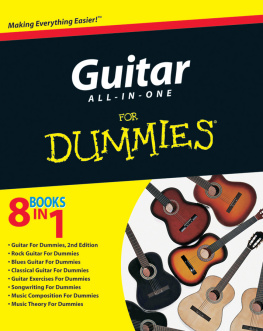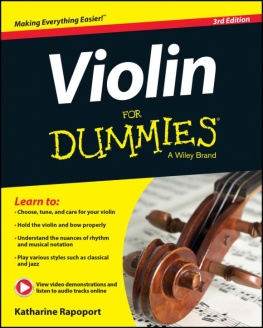
ISBN: 9781626754676
INTRODUCTION
Welcome, my curious friend. I have written this book for my benefit as much as I have written it for yours. We both share something; we were both drawn to this wonderful and enigmatic instrument, which has captivated our thoughts and hearts; I am of course talking about the Armenian Duduk.
For years I kept hearing this wonderful instrument, and always wondered what it was. After much searching and reading interviews with Han Zimmer, I was able to find the name Duduk, and after finding the performance on YouTube of Yannis Prelude with the wonderful Pedro Eustache, was able to confirm that the sound that haunted my ears was that of the Armenian Duduk.
I had intended to use the instrument in my own works, and after failing to locate someone that played it, I decided to get my hands on one instead, so at least this would help me develop knowledge about the instrument first hand, so I could write music for it that would be playable by a Dudukist, and not end up looking like an idiot.
It didnt even occur to me that I would be able to get a sound out of it, let alone enjoy learning to play this wonderful and fascinating instrument. But as the weeks past, I found myself getting more drawn to it. I wanted to learn more; I wanted to know how to make it sound the way it should, what were the techniques, the scales, and the music, everything I was hooked. I imagine like myself, you are also finding you are curious and interested by the instrument and have a burning desire to learn more and be able to play your favorite pieces, and perhaps even one day sound like Djivan Gasparyan.
As such, this book is for you, and should cover pretty much all you need to know to develop your skills as a Duduk Player. I have spent countless hours, fired off dozens of emails, scoured forums, and talked with people from all around the world to acquire the information I gathered, and here, am presenting it to you. The bulk of the research started during 2010, and Ive spent the last few years slowly trying to understand and apply it, to the format you see before you.
I should note that you should avoid skipping chapters or trying to quickly move on: the Duduk is an instrument which demands much from its player: Breathing, Muscle Control, Aural Awareness, and a deep understanding of music. These things cannot be acquired just by reading a chapter; they require months even years to develop, along with the skills you shall acquire learning to read the notation, and eventually the later chapters on the Mughamat & Maqamat modal systems.
So, be patient, work diligently, and focus, and the instrument shall reveal itself to you, and you will find yourself being greatly rewarded with something which will make you feel a great connection with your soul, your heart, and the wonderful ethereal world that surrounds us.
Enjoy my friend, and best of Luck!
Dave Dreamfullofzen Tawfik
ACKNOWLEDGEMENTS
There are many people Id like to thank for many things, but Ill try and keep it focused and on topic. Id like to acknowledge the following people for their influence on this written work, which would not have been possible without them:
Steen Geesemailk: our email exchanges and the research on the Duduk have been something Ill cherish for a long time.
Amr Ismail: for including me in your work & introducing me to the movie biz in Egypt, something which would not have been possible if it were not for you.
Tamer Fahmy: for being a good friend, and sharing the world of music with me, for illuminating it, with your Bassoon, and your wonderful Sax playing.
Dr. John Baboukis: for bringing me into the AUC world and making me feel useful there, and for making me feel less awkward about being a non-academic in an academic world.
Raquy Danziger: for the inspiration, the friendship, and for being the wonderful person you are. I doubt I would have written this book, nor picked up the Duduk if I hadnt met you.
Dr. Ryan Skinner: the time we spent, though short, was invaluable in leading me down this road one which you ironically predicted.
Rami El Aasser: For the friendship and interesting musical encounters. Also, the consumption of Thomas Pizza & the musical conversations and Cairo wanderings are sorely missed.
Vache Sharafyan: For the Duduks, Reeds, and other valuable things you gave me.
Gevorg Dabaghyan: for taking the time to pick the Duduks and Reeds I play, they have brought me many hours of joy, and for your wonderful playing and inspiring videos.
Djivan Gasparyan; your performances & who you are, are a constant inspiration.
Levon Minnasian; for adding me as a friend on youtube, that made my day! And for your haunting Duduk performances. I hope one day to be able to make it sing the way you do.
Vernon Jenewein; for your generosity, and the Duduk you sent. Ive enjoyed your comments and words of encouragement greatly.
Danny Fahmy: for the Oud, the amusing conversations, and the constant exchange of rude words.
Noha El Badry: I probably wouldnt have started writing this book had we not spent the time we did together.
Mel McCombie & Harris Freidberg: Meeting you both was wonderful, and I enjoyed the brief but fulfilling time around such wonderful people.
William & Nelle Evenhouse; for being friends in a place and time where close friends, seem to come and go. Your encouragement, friendship, and welcoming me into your home was something Ill value for the rest of my life.
And finally, my Father, Maher Tawfik
For those who have come, and gone from my life, you are not forgotten Till we meet again..
I
THE ARMENIAN DUDUK
THE ARMENIAN DUDUK
Before talking about the instrument in depth, I wanted to start off by clarifying something: this book is about the Armenian Duduk. Not the Turkish Mey, and not the Azerbaijani Balaban. I want to clarify this because there is a continuing argument between the three nations as to whom the rightful inventor of the instrument is, and who brought it to the world first.
Firstly, I am not a scholar, and there have already been some great articles & publications that deal with this subject, so I am not interested in conducting research on the matter, nor do I feel I have the background or expertise to do so anyway. Secondly, and more importantly; the amount of tension between all three nations is rather staggering, and some of the comments being placed on the web are downright childish, mean, racist, and completely uncalled for, and I have no desire to put myself in the firing range!
This book is about the Armenian Duduk, not any other nations version of said instrument, and Im not interested in arguing about who made it first, nor what is correct or incorrect. Im not educated enough on the subject, nor am I interested in heated debates or semantics. Ive had several comments on my YouTube videos by people from all three nations which leads me to believe that people are just interested in spouting out hateful remarks, without thinking about what theyre saying, or even just how ridiculous it is to do so. If you choose to live your life in the dark shrouded by ignorance, and indoctrination, thats your call. I would like to take the opportunity to answer a few of those remarks here, just for posterity, and for you the reader, in case you choose to upload to YouTube your endeavors on the instrument, and come across similar comments
Furthermore, I should like to speculate that I do not have ancestry which would make me have negative feelings towards anyone from these nations. I am aware of the tragic events that have transpired, and can appreciate the affect it has had on peoples lives and family lineage, and its continued affect. I could make countless arguments about religion & forgetting the past, but it would be incredibly ignorant of me to do so, not to mention offensive. My intention of this writing is to clarify and illuminate on the subject of the Armenian Duduk, and the music of the instrument, and the regions around it in a basic form.
Next page
